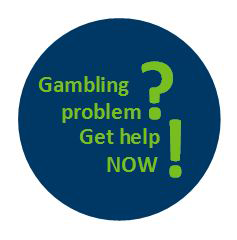About problem gambling

For many people, gambling can be a harmless form of entertainment. But when gambling goes from being a recreation to an obsession, it becomes a problem. Whether buying lottery tickets, going to a casino or playing poker with friends, a person may have an addiction, damaging family relationships and ending friendships, jobs and even lives.
Problem gambling affects people of all cultures, ethnicities, ages, genders and incomes. If not addressed, problem gambling can lead to gambling disorder, which is a diagnosable addictive disorder. Gambling disorder is a progressive addiction characterized by:
- A need to gamble greater amounts to reach the desired excitement
- Frequent preoccupation with gambling
- A need to bet more money more frequently
- Restlessness or irritability when trying to cut down or stop gambling
- An inability to stop gambling despite serious negative consequences, such as loss of significant relationships, job, educational or career opportunity.
The gambler isn't the only one affected by a gambling problem. Family members, friends and co-workers of a problem gambler may themselves face:
- Depression
- Low self-esteem and poor self-image
- Feelings of inadequacy
- Emotional distance from other friends and family members
- Anger, resentment and confusion
- Tendencies toward drug and alcohol abuse
- Verbal, emotional or physical abuse
- Feelings of guilt and suspicion.
Find out more about programs and services for problem gambling.
